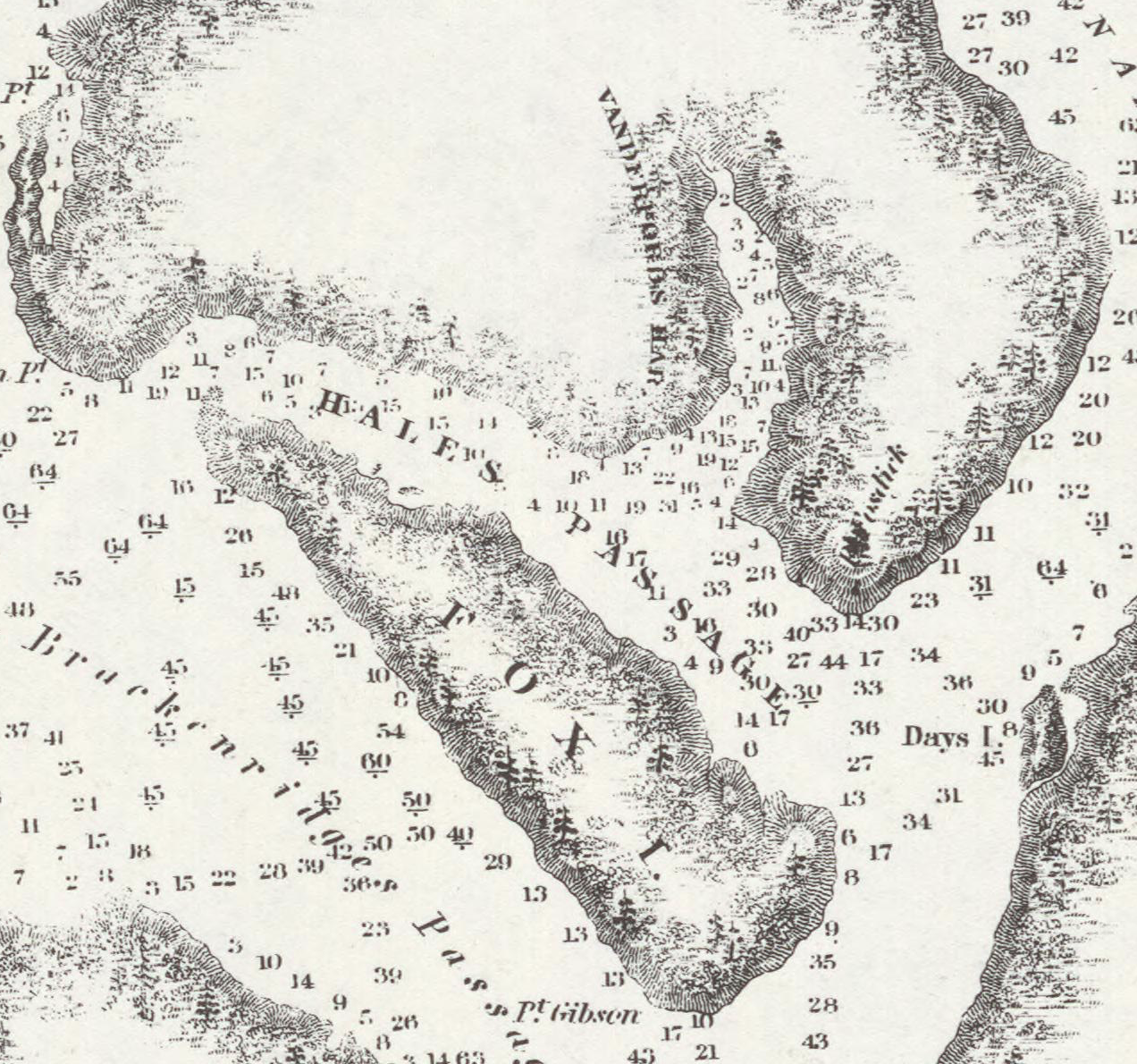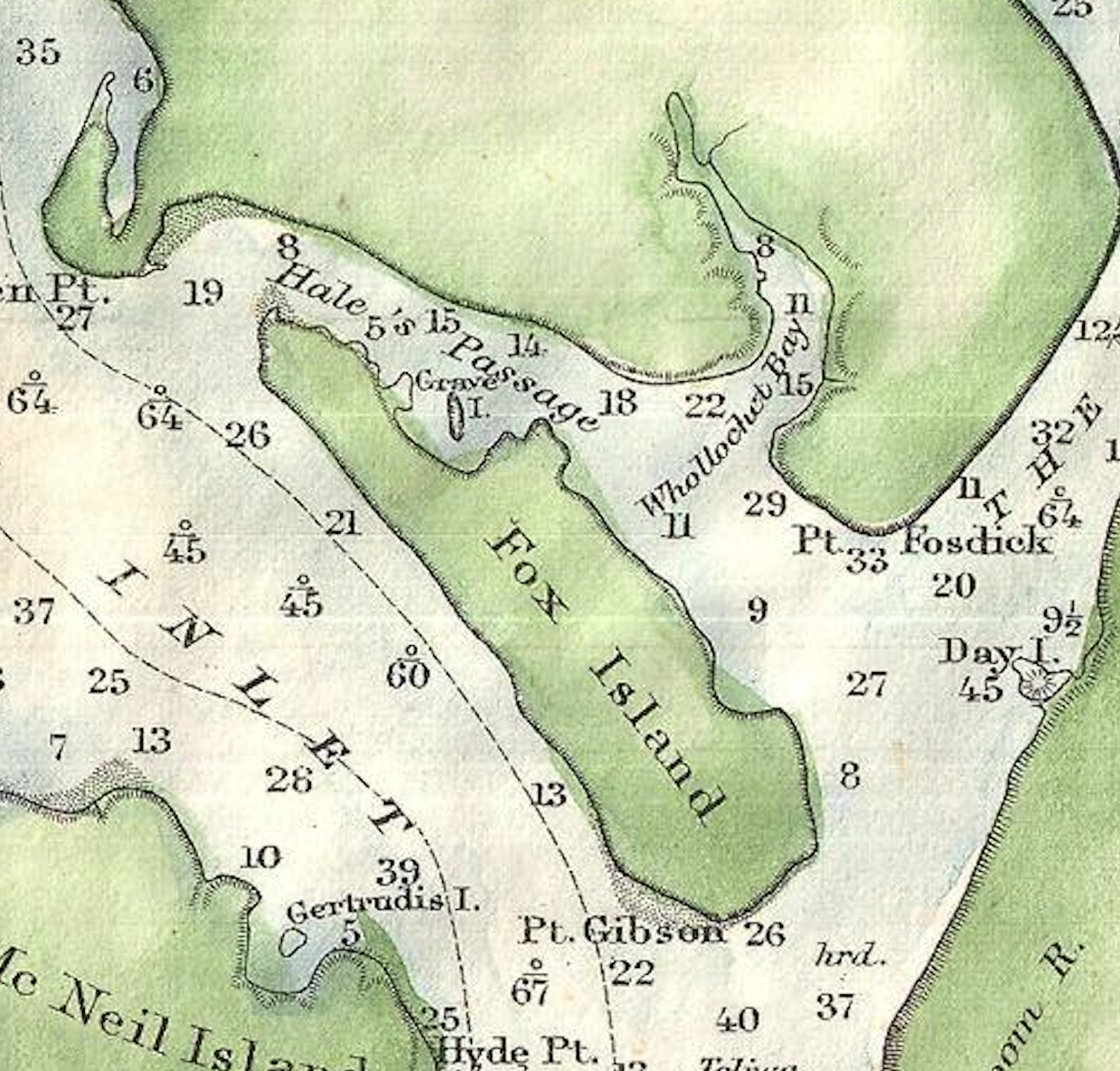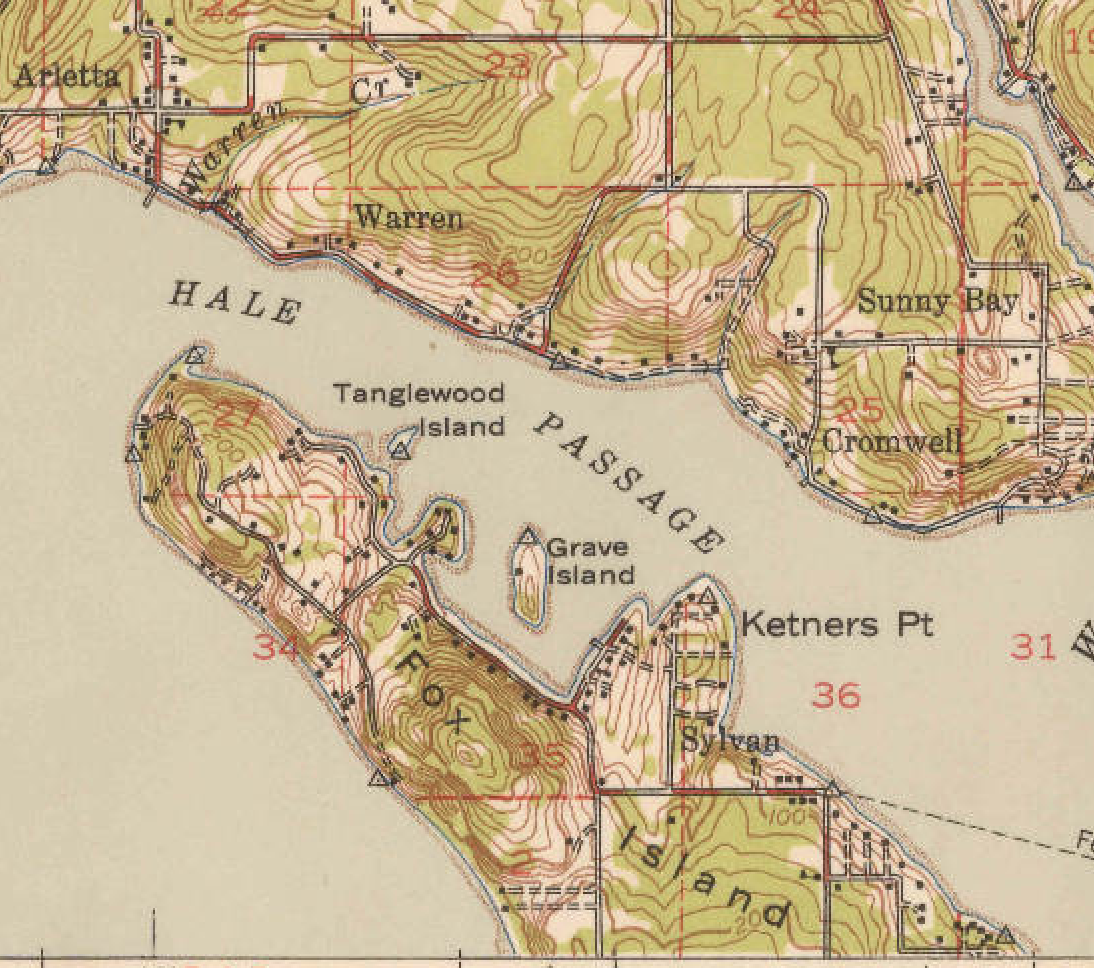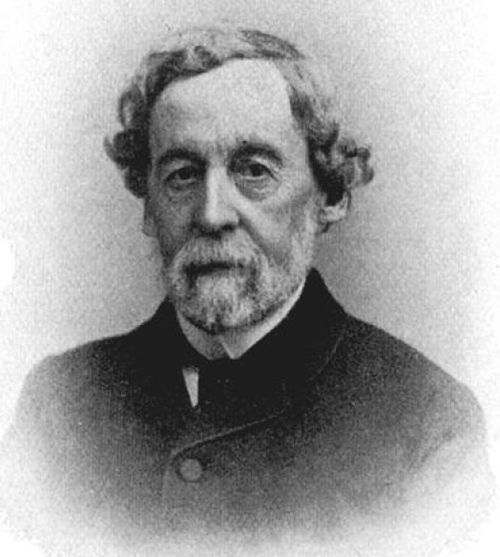Hale's, Hales, or Hale Passage?
Not sure why, but it's important.
September 2025 (researched and written by The Dogfish)

Not the biggest issue we face day to day, but do we live along Hale’s Passage, Hales Passage, or Hale Passage? You can find all of these spellings in various media—from signs to advertising to presentations. But you will find it spelled only one way in U.S. government charts and maps: Hale Passage. The reason why is interesting enough to warrant some discussion.
Names throughout the Puget Sound region originate from two primary mapping and exploratory expeditions: George Vancouver’s survey in 1792, with most of the fieldwork carried out by his lieutenants (the most famous being Peter Puget), and the United States Exploring Expedition of 1841, led by Charles Wilkes. Vancouver and Puget had a penchant for using the names of their crew for islands, points, and inlets, while reserving the most prominent features for British royalty and military figures. Wilkes created some more colorful names (such as Gig Harbor) and also named features after his crew, including Horatio Hale.

Horatio Hale was the expedition’s ethnologist and philologist (a scholar of languages). Wikipedia has a good article on him (Wikipedia article on Horatio Hale) (Wikipedia article on Horatio Hale). For reasons that are not entirely clear, Hale’s name was applied to two separate locations: Hale Passage along Fox Island and another Hale Passage near Lummi Island. The original Wilkes Expedition charts clearly label both as “Hale’s Passage.”
By 1867, the U.S. Coast Survey chart had removed the apostrophe, rendering the name as “Hales Passage.” In 1923, Edmond Meany’s Origin of Washington Geographic Names lists both passages as Hale Passage. This leaves us with official maps over time showing all three versions.

This seemingly intractable dilemma was settled in 1890 with the establishment of the U.S. Board on Geographic Names, created by President Benjamin Harrison to standardize geographic name spellings throughout the federal government.
Within the next couple of decades, the Board adopted the policy that geographic features are not “possessed” by anyone and therefore their names should not include apostrophes. With this decision, existing possessive names such as Hale’s Passage were standardized into non-possessive forms, such as Hale Passage.

There is a fun aside: the Board of Geographic Names has allowed only five exceptions to this rule. They are:
- Martha’s Vineyard, Massachusetts
- Ike's Point, New Jersey
- John E's Pond, Rhode Island
- Carlos Elmer's Joshua View, Arizona
- Clark’s Mountain, Oregon
Only the last of these was granted specifically to preserve a historic association—in this case, to honor William Clark of Lewis and Clark fame. With over 2.3 million geographic names in their database, it is interesting to ponder why John E, Ike, Martha, and Carlos Elmer were chosen as the other exceptions. Apparently, that is where the line was drawn.
To summarize: The proper name for the waterway between Fox Island and the mainland is Hale Passage…
…because the U.S. government says so.